|
.
 |
|
 |
| Click on
the above programme pages
to enlarge |
If
you were to ask anyone of
my age about radio during
their childhood, they
will undoubtedly talk
about their favourite
B.B.C. programmes and
also mention Radio
Luxembourg. The only
place to hear rock
‘n’ roll with
any regularity on the
radio at that time was on
Radio Luxembourg.
It was
sometime in 1951 that my
listening pleasure was
extended to include Radio
Luxembourg. The
station format and
style differed
markedly from the
formality of the B.B.C.,
however Radio
Luxembourg suffered
from a major problem and
this was its reception,
which could be poor at
times. Neither of my
parents would tolerate
the variety of crackles,
snaps and juddering
thumping sounds that
could accompany the often
waxing and waning
reception. In those days,
one had to be a real fan
in order to maintain
attention to a programme.
 Radio
Luxembourg came into
being in an attempt to
introduce commercial
radio into Britain.
In 1927, monopoly rights
to broadcasting in
Britain passed to a new
non-commercial British
Broadcasting Corporation
(B.B.C.), which
operated under a charter
from the Crown.
Various attempts were
made to bring commercial
radio to Britain, one of
which was housed in
Luxembourg. Luxembourg is
a very small country in
Europe and a member of
the European Union or
Common Market, as
it was once called. It is
a Duchy and
ruled/administered over
by a Grand Duke.
It is a charming place
and I went there a number
of times in the 1970s to
take advantage of the
cheap flights between
Europe and North America
since it was the main continental
hub of Icelandic
Airlines. The
country’s location
in Europe put it in an
ideal position for the
broadcasting of radio to
other countries nearby. Radio
Luxembourg came into
being in an attempt to
introduce commercial
radio into Britain.
In 1927, monopoly rights
to broadcasting in
Britain passed to a new
non-commercial British
Broadcasting Corporation
(B.B.C.), which
operated under a charter
from the Crown.
Various attempts were
made to bring commercial
radio to Britain, one of
which was housed in
Luxembourg. Luxembourg is
a very small country in
Europe and a member of
the European Union or
Common Market, as
it was once called. It is
a Duchy and
ruled/administered over
by a Grand Duke.
It is a charming place
and I went there a number
of times in the 1970s to
take advantage of the
cheap flights between
Europe and North America
since it was the main continental
hub of Icelandic
Airlines. The
country’s location
in Europe put it in an
ideal position for the
broadcasting of radio to
other countries nearby.
Eventually
after much too-ing and
fro-ing between
interested parties and
the ignoring of an
international agreement
regarding wavelength use,
transmission from
Luxembourg began in both
English and French in
1934 on long wave.
Both of these stations
were commercial
stations, which were
naturally frowned upon
by the purists in the
society, and especially
by the B.B.C. and
by those that ran the
newspapers. A full
history of the early days
of the station may be
found at http://www.pjede.de/208/history.html
and http://en.wikipedia.org/wiki/Radio_Luxembourg_(English).
With the
outbreak of the Second
World War, the radio
station closed down, but
was soon used by the
Germans to transmit
propaganda by William
Joyce, Lord Haw-Haw amongst
others. Once liberation
came, the station was
used by American forces
for the duration of the
war years. With peace,
attempts were made to
revive the English
service and in the early
1950s, transmissions were
transferred to a new
wavelength on the medium
wave, 208 metres (1430
kHz). French
programming continued on long-wave,
while English
programming now appeared
exclusively on medium
wave from 6 p.m. with
German and Dutch
emissions using the
frequency during the day.
The English language
station soon became known
as 208 – The
Station of the Stars
since programming
featured sponsored
showcases for musical
entertainers popular at
the time.
I first
listened to Radio
Luxembourg on my
parents’ radiogram,
a Sobell. This
was an elegant piece
of furniture made of
walnut wood. It had a
lid, which when lifted
exposed a radio capable
of picking up short
wave, medium wave and
long wave emissions
and had a turntable that
played up to ten
records, one after
the other. It was said to
be state of the art at
that time. Whether this
was true or not, it was
my mother’s pride
and joy and I was
only allowed to touch it
under the strictest of
supervision when we first
got it. We used to
listen to the home
service and the light
programme and
occasionally the third
programme and also to
the records in
their collection, which
had been mostly obtained
from Paul’s stall
and shop.
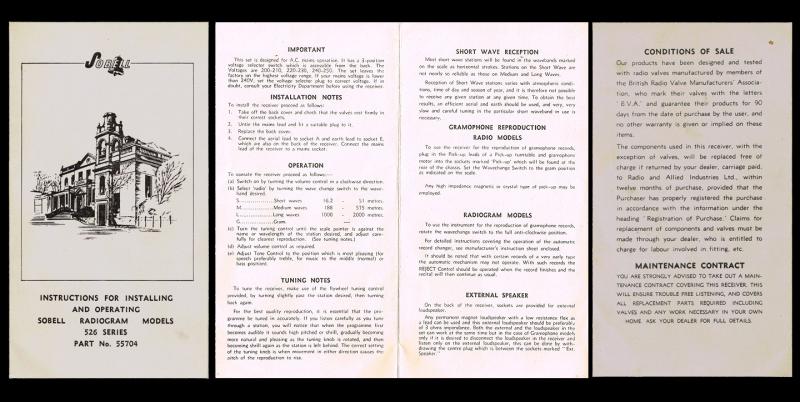
Click on
the pages of the booklet
to enlarge
In those
early days of listening
to Radio Luxembourg,
my interests were not in
the musical programmes or
in the game shows.
My interest lay
elsewhere. I wanted to
hear about the latest
adventures of Dan
Dare
who I was following
with interest each week
in The Eagle. The
Eagle was a
children’s comic
that had started
publication recently in
1950 and had quickly
become an essential part
of every boy’s
reading at that time. Dan
Dare and his
associates were featured
each week along with
other great staples such
as Riders of the Range
and P.C. 49, both
of which were weekly
radio programmes, much
enjoyed by me. The
Eagle was a great
comic. It also contained
news and sports and was
written in a style
guaranteed to appeal to
boys without being
patronising. The Eagle
also included cut-out
drawings, which
allowed the reader to
make models of objects of
interest.
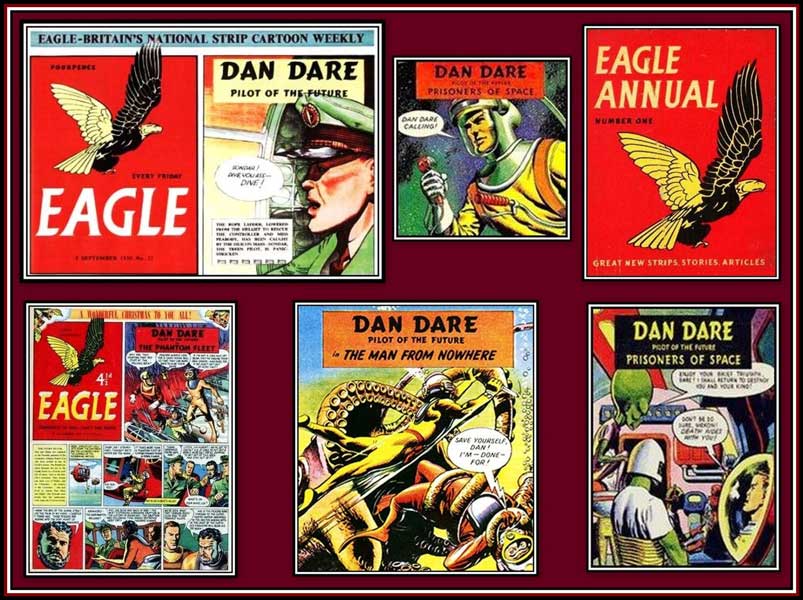
My parents
enjoyed listening to the
various fifteen minute
programmes that were once
presented on Radio
Luxembourg. Here
various stars or
well-known bands would be
featured. Sunday evening
was perhaps the best
night for such listening
pleasure. I remember my
parents listening, and
occasionally dancing, to Edmundo
Ros & His Orchestra.
This was followed by the
lush dulcet sounds
of Mantovani
& His Orchestra.
Mantovani was famous
for his shimmering
violins and sophisticated
arrangements and was
immensely popular around
the world for many years.
Bing
Crosby,
Burl
Ives,
and Jo
Stafford
also had shows on Radio
Luxembourg at one
time or another. I also
remember Winifred
Atwell,
Vera
Lynn
and David
Whitfield
having their own
shows as well. I cannot
say that I was especially
interested in their
presentations at the
time.
I remember
that it was thanks to Radio
Luxembourg that we
were first introduced to Earl
Stanley Gardner’s
Perry Mason. Adaptations
of these mysteries were
presented in fifteen
minutes segments with
suitable musical
accompaniment to heighten
the tension. I remember
sitting spellbound as
I listened, probably with
mouth open, to each
episode. However, within
a few short years, once Perry
Mason came to
television, I was older
and saw myself as being
too sophisticated in
my tastes to watch such matter,
much to the annoyance
of my mother, who enjoyed
them very much. Many
years later, thanks to
television reruns, I
had the opportunity to
revisit the object of
my ridicule and watch
many of these episodes.
Whether I had aged and
developed a greater
willingness to tolerate
such material or whether
these programmes
weren’t as terrible
as I had once surmised my
opinion of these stories
changed yet again and I
found myself enjoying
them – much to the
amusement of my mother!
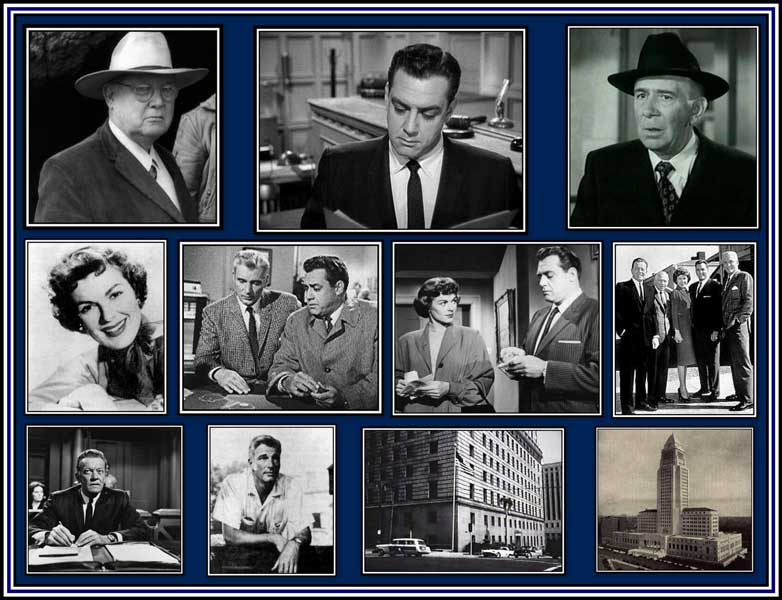
Listening
to Radio Luxembourg in
those days gave the
listener their first
taste of commercially
sponsored radio. The
B.B.C. did not
allow advertising and
still does not. In those
days, listeners
weren’t used to
interruptions in the flow
of a play or in musical
presentations. The B.B.C.
gained its revenue
from the requirement of a
yearly licence, which
was obtained from the Post
Office. A fine would
be levied against members
of the public listening
without a licence.
Apparently the B.B.C. had
vans with trackers
that were able to find
those homes without licences
or so they said. Radio
Luxembourg offered
its programming free to
the British public and
obtained their revenue by
selling air time to
a variety of companies
who then sponsored
a show. Sponsorship
then allowed a variety of
companies to advertise
their products to the
listening public. This
was a novelty to us at
the time. With the spread
of commercial radio and
its eventual extension to
television,
advertisements have
become a part of modern
life and far from being a
novelty. At one time, certain
advertisements
bordered on art or
were pitched as
being so:
Chanel
No. 5
Chanel
No. 5 - Share the Fantasy
Most adverts
were direct and some were
redeemed by their humour.
Many were memorable.
I doubt that there
isn’t a person
living in Britain of my
age who doesn’t know
that you’ll look
a little lovelier each
day with fabulous Pink
Camay? And who did
not know that the perfume
used in the soap was
worth a stunning nine
guineas an ounce?
Today, we
live in an age where we
are inundated with
advertisements. With the
advent of demographic
groups, they are
aimed with special
attention to target
audiences. Mercifully
for me, I have reached an
age where most
advertisements are no
longer aimed at my group,
and like many other
members of society, I
consider them as
annoyances to be ignored
as much as possible.
I
remember, as a child,
being greatly amused by
some of the commercials
on Radio Luxembourg
and would often find
myself singing one of the
jingles, as the
tunes and ditties were
soon called. Here are a
few examples of
commercials and
accompanying jingles that
which once graced the
airwaves of Radio
Luxembourg:
Pepsodent
– You’ll wonder
where the yellow went
Ovaltine
– The
Ovaltiney’s Song
Esso
– The Esso Sign
means happy motoring
Shell
– You can be sure of
Shell
Horace
Batchelor –
Infradraw method
One of the
best remembered adverts
of the time was for Ovaltine.
This was a malt
product that was
dissolved in warm milk
and drunk generally at
bedtime. I think that it
was meant to give a restful
night’s sleep.
As a child, I found the jingle
associated with the
product to be amusing,
but then it was meant to
appeal to people of my
demographic age group:
We are the Ovaltineys,
little girls and boys. This
was sung by young
children with shrill
voices. Despite this,
most kids sang along with
them. My mother tried to
get me to drink it a few
times, but each time she
did, I vomited and
so she gave up. I
don’t think that it
was the Ovaltine that
caused this, but rather
the milk. I used to drive
teachers nuts as a kid,
as I refused to drink the
milk provided by the
state to all school kids.
I told them that if they
insisted that I drink it,
I would soon be sick.
Each new teacher would
naturally not believe me
and insist that I drink
it. Most soon became believers
when within ten to
fifteen minutes I would
be vomiting on the
floor of the classroom.
Some teachers took a
little longer to
convince, but eventually
even they got the
message. Sadly, there was
no talk about lactose
intolerance in those
days.
Britain is
a country of gamblers. In
the early 1950s, there
were no betting shops or
casinos and no Bingo
except at the seaside and
at church fates and other
functions. The Bingo craze
was only just beginning
and its popularity had
not yet grown
sufficiently to cause its
take-over of
multiple local cinemas
and theatres. This would
come within a few years
later. Although off-track
betting was illegal,
everyone knew of someone
who kept a book on
both dog and horse
racing. However, of the
legal gambling outlets of
the time, the most
popular was the weekly flutter
on the Football
Pools.
I can
recall at least three
major Football Pool companies
– Littlewoods,
Vernons and Empire
– although I am
sure that there were more
at one time. Each
company offered patrons a
chance to win up to fifty
thousand pounds, a fabulous
sum of money at the
time, if they were able
to predict eight draws
on one line, which
was officially called the
Treble Chance. The
average British workman,
although women were known
to enjoy a flutter,
would spend much of his
free time between Monday
and Wednesday studying
the form of the
football teams playing
matches on the following
Saturday. Study was a
serious matter and much
would be written on the
possible draws on the Sports
Pages of the daily
and specialised
newspapers of the day.
Generally on a Wednesday,
the punter would
sit at their kitchen
table after the evening
meal and fill out the
coupon. Complete
silence would be required
throughout the house
while Dad was busy
since no one wanted to
risk his making an error.
Once complete, the coupon
was neatly folded and
placed in the provided
envelope, sealed and a
stamp placed on the top
right hand corner of the
front. The now stamped
and addressed envelope
would next be placed on
the mantle over
the fire and someone, generally
one of the children,
would be told to post it
on the following morning
on their way to school.
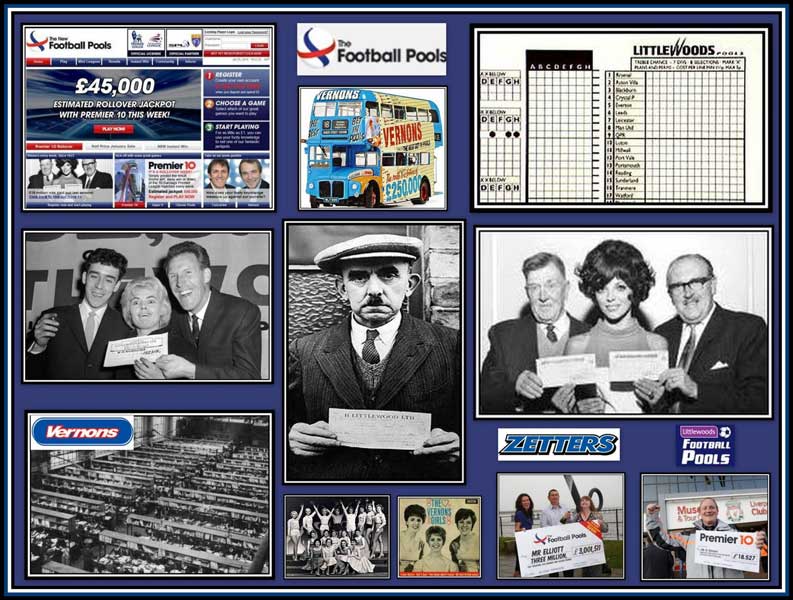
This job
sent shivers down
the back of many a child
of the time since should
the entry did not
arrive at the company
before the deadline, and
were it to contain the
winning entry, it
would not be recognised
by the company and the
sender would be
ineligible to share in
the winnings. The fallout
of such a tragedy did
not bear thinking about!
I was lucky as my father
had no interest in the
pools and when my
mother made an effort to
enter, which was rare, I
was required to choose
the matches, fill out the
coupon and post the
letter. Needless to say,
we never won a penny, as
I did not have a clue as
to which teams were
likely to draw. I
made guesses and
always completed the form
on a Sunday evening and
posted it on the
following Monday without
any study or thought. My
mother would have done
better had she used a
pin to choose the
teams!
Doing
the Pools, for many
was not just a flutter
or a bit of a
gamble and a
laugh! No, for them,
it was a deadly and
serious business as their
families could attest
too. What could really
fill mothers, wives and
children with fear,
besides the thought of
not getting the entry
at the company before the
deadline, was the
actual learning of
the results. There would
be a general demand
for silence while the News
Reader read the
results, which regularly
followed the 6
o’clock News on
a Saturday evening and Dad
checked his entry.
Whole families sat with
breath held and shivered
as they waited to learn
if their lives were about
to change. Many wives
knew that win or lose they
would be paying for it
later that evening once
their husbands returned
from their supping at
the local pub. In the
vast majority of cases, Dad
did not win the grand
prize. Family dreams
were then put away yet
again for another week.
Slowly life would go back
to normal while Dad was
allowed to sulk in his
chair until it was time
for him to go to the pub
and drown his sorrows leaving
poor Mum to mind
the kids and to sit and
wait for his return.
However,
some people suffered more
than others over the
Pools. The worst job
that I have ever heard of
was that performed each
week by a kid that I knew
in school. This poor boy
not only had to sit in
silence while the
results were read,
but was actually required
to write down the scores
of each team as the News
Reader read them in
that slow and deliberate B.B.C.
manner of the time. I
knew for a fact that this
poor child shook at the
thought of this task. He
told me how he had to
listen with great
concentration and did not
dare make an error for
risk of angering his
father who swore at the
radio each time a
displeasing result was
read. The punishment,
should he have actually
made an error, did not
bear thinking of! I
suspect that the poor kid
grew up to be a
nervous wreck and
probably never did the
Pools himself!
Many
stories and even a
musical
have been written about winners
who, after winning
vast fortunes on the
pools, wasted it a
frivolous manner or else
invested it poorly and
lost it all. Obviously
some must have lived
happily ever after,
but their stories must
have been of little
interest to the reporters
of the various newspaper
style magazines of
the time since we heard
nothing of them.
Many
serious punters of
the time would invest in
a variety of plans or
perms to help
increase their chances of
winning a large
dividend on the treble
chance. These plans
or perms were
offered to the public by
various companies and
individuals who made a
lot of money selling what
they said would bring
riches to buyers. Again,
if you were to mention football
pool plans to anyone
young in the 1950s and
1960s, it is highly
likely that the
infra-draw method would
come to mind and the name
of its inventor,
Horace Bachelor would
soon be quoted. Anyone
who listened to Radio
Luxembourg at that
time could not fail to
remember him. Horace would
do his own
advertisement extolling
the virtues of his plan.
He told of the huge
number of first treble
chance wins that he
had garlanded using his
own method. The thing
that made this advertisement
so memorable was,
believe it or not, the
manner in which the address
was delivered. At the
end of the advertisement,
the potential punter
was requested to:
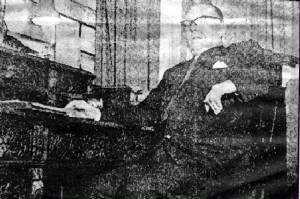
Horace
Batchelor |
send
no money, just your name
and address ….
send now to Horace
Bachelor
Department One
at Keynsham – spelt K-E-Y-N-S-H-A-M
-
Keynsham, Bristol |

Keynsham
High Street |
I
seem to recall that Horace
did the whole of his commercial
himself at one time,
including the reading
of the address. For a
time Horace enjoyed
celebrity status,
if only in a slightly
mocking manner, but had
the distinction of being
included in the list
of performers provided
by The Bonzo Dog Doo
Dah Band on their
classic The
Intro and The Outro,
which gives full
recognition to his place
in the pop culture and
national psyche of
the time.
The
amusing thing about this advertisement
was that after
hearing its delivery a
few times, listeners
would merrily spell
along with the
announcer! Should an
ex-listener ever have the
need to utter the word Keynsham,
I am confident that
he or she would most
certainly follow it with
its spelling, which
proves what a remarkable
piece of brainwashing had
taken place. Sadly for Horace,
any brainwashing did
not extend to vast sales
of his product. As
amusing as it was to have
heard of Keynsham
(spelt
………!)
at that time, I am sure
that few of us actually knew
where it was!
In
those early, pre-rock
‘n’ roll days,
Radio Luxembourg
was something that I
listened to with my
parents. I cannot say
that other than Dan
Dare and Perry
Mason, I didn’t
find anything else aired
to be of interest. As Carl
Perkins would later
say, none of the music moved
me!
It was fine as far as it
went, but it was not the
kind of stuff that I
heard at Paul’s stall
and it wasn’t until rock
‘n’ roll came
along that I became a
lifetime fan of the
station and, for me and
millions of others, it
became truly The
Station of the Stars!
.
.
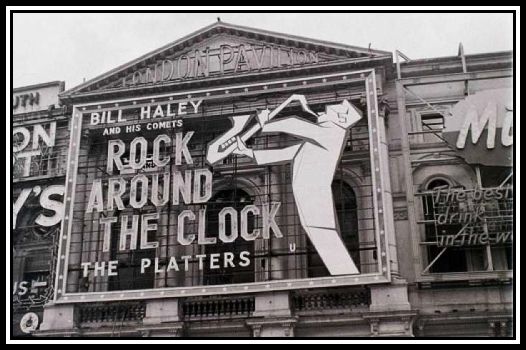
|